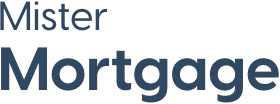
What are the mortgage types in the Netherlands? There are main types of mortgages in the Netherlands: government-guaranteed mortgages and banking institutions.
What are government-guaranteed mortgages in the Netherlands?
The Stichting Waarborgfonds Eigen Woningen (WEW) provides NHG coverage. WEW was established in 1993 to realize that buying a home is more affordable.
In the early 1990s, the Dutch government recognized that many homeowners faced challenges by not paying their mortgages due to unexpected life events like job loss, illness, or divorce. At that time, there was a concern that people who struggled to pay their mortgages might lose their homes and still be burdened with significant debt, even after selling their property. For this reason, the NHG was created as a safety net.
Why should you pick a mortgage with NHG?
Mortgage lenders offer a better interest rate for mortgages than NHG guarantees because of the shared risk. Because mortgage lenders don’t need to include the shared risk in their pricing.
Why shouldn’t you pick a mortgage with NHG?
NHG-guaranteed mortgages have a maximum sum of €450,000 (2025). It is becoming more and more difficult to get a property with NHG in very popular areas, such as Amsterdam
Conventional mortgages
Conventional mortgages typically refer to traditional home loans offered by private lenders without government guarantees. These mortgages are not insured or subsidized by the Dutch government and are subject to the lending standards and criteria set by private financial institutions. Borrowers seeking conventional mortgages in the Netherlands generally need to meet stringent creditworthiness requirements, provide a down payment, and adhere to the terms and conditions set by the lending institution. These mortgages are a common means for individuals in the Netherlands to finance the purchase or refinancing of residential properties through private financial institutions.
Why should you pick a conventional mortgage?
Mortgage lenders are more (in)flexible when they don’t need to meet the criteria and terms of NHG. While this will be an advantage in some specific cases, in other cases, it can be disadvantageous.
Why shouldn’t you pick a conventional mortgage?
The possibility of borrower default poses a risk for mortgage lenders. Therefore, the risk causes higher interest rates than government-guaranteed mortgages. As a result, banks charge a higher interest rate.
Schedule a complimentary introductory call with our mortgage specialists. We specialize in mortgages for expats and are dedicated to navigating you through the home-buying process.
-
Get clarity on your financial possibilities.
-
Access to a trusted network.
-
Highly competitive rates and flexible terms.
-
English translations of bank documents are shared.

- 100% Independent Advice




